
Plastic exporting enterprises enjoy preferential tariffs to EU market
Latest
| TIN LIÊN QUAN | |
| Eased regulations set up EVFTA agriculture benefits: Experts | |
| Ambassador Vu Quang Anh: Great prosperity and stability from EVFTA | |
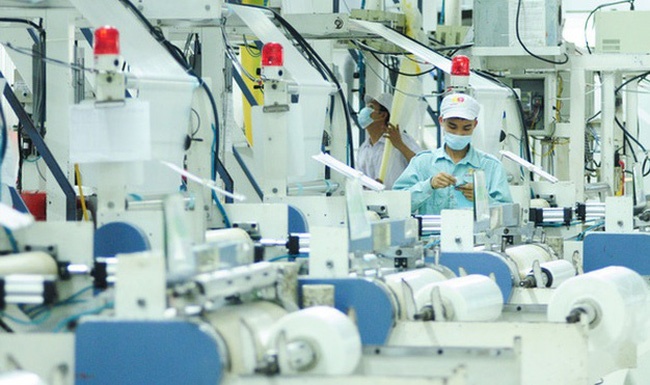 |
| Inside a plastic enterprise in Vietnam. (Photo: cafef) |
Last year saw the nation’s plastic export turnover reach a total of US$3.44 billion, an increase of 12.9% from 2018’s figure. Statistics released by the General Department of Customs indicate that plastic export turnover has seen a consistent increase in recent years with an average annual growth rate of between 14% and 15%.
Most notably, sharp increases were recorded in a number of markets, including Hong Kong (China) with a rise of 63.3%, Switzerland up 131.3%, India with an increase of 47.6%, the United States up 39.3%, and the EU with a 10% rise.
Of the 28 individual markets within the EU, some tend to spend big on importing plastic products from the nation, such as the Netherlands at US$137 million, Germany at US$135.4 million, the UK at US$111 million, France at US$53 million, and Poland at US$35 million.
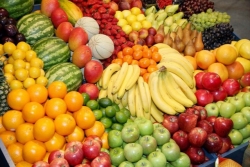
| Vietnamese fruits conquer the world market |
These figures indicate that local businesses enjoy plenty of opportunities to export plastic and plastic products to the EU market, providing that they are fully prepared to fulfill the requirements set out within the EVFTA.
Ngo Chung Khanh, deputy director of the Multilateral Trade Policy Department under the Ministry of Industry and Trade, says that aside from items such as seafood or garments and textiles, the EVFTA offers fairly flexible origin criteria with regard to plastics and plastic products. Therefore, the trade deal allows firms to use up to 50% of non-originating materials during the production process.
These flexible rules of origin placed on plastic products exported to the EU has increased competition for firms as they remain passive in production as a result of domestic raw materials meeting only between 15% and 35% of demand for different types of plastic materials, while the remaining 85% are dependent on imports. Indeed, there are more than 2,000 plastic enterprises located nationwide, of which 84% are based in Ho Chi Minh City.
Businesses enjoy double benefits on prices and tax incentives
According to the Import-Export Department under the Ministry of Industry and Trade, figures relating to the stable export growth of the plastic industry in recent years has seen the import demand of plastic products in the EU and Japan markets remain high, with Vietnamese plastic products, especially plastic pipes and plastic bags, in great demand. Moreover, both the EU and Japan represent traditional markets that local businesses are keen to gain entry to.
Furthermore, Vietnamese plastic products in the EU market are not subject to an anti-dumping tax of between 8% and 30% that other nations typically face. Recent times have seen plastic packaging businesses increase their export market share to the EU, largely due to the dual benefits of prices and import tax incentives.
In line with growing export figures, the plastic industry has paid close attention to developing exports with a particular focus placed on raw plastic materials of high technical content which enjoy a higher export value compared to pure plastic products.
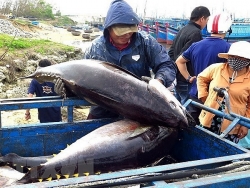
| EU to remove tariffs on Vietnamese tuna once EVFTA trade deal takes effect |
An Phat Holdings Group is one of the largest domestic enterprises operating in the plastic industry that has invested heavily in recent years as a means of expanding production. They have set a goal of exporting biodegradable plastic packaging products to demanding markets like Europe, Japan, and the US.
According to the Vietnam Plastics Association, the first half of the year saw plastic export turnover reach an estimated US$1.62 billion, suffering a decline of over 5% compared to the same period last year. The nation’s recent signing of new free trade agreements, including the EVFTA which is set to come into effect on August 1, will offer a wealth of opportunities for enterprises to export their plastic packaging products abroad.
It is anticipated that foreign partners will gradually focus on shifting orders from China to the country in an effort to capitalize on cheap production costs whilst simultaneously enjoying export tax incentives to Europe.
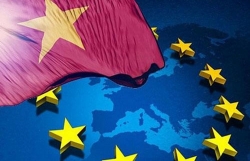
| Eased regulations set up EVFTA agriculture benefits: Experts Though Vietnam’s agricultural sector will receive attention from the forthcoming EU-Vietnam Free Trade Agreement, it needs to overcome some challenges to enjoy optimum preferential treatment. |
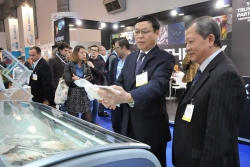
| Ambassador Vu Quang Anh: Great prosperity and stability from EVFTA TGVN. The EU-Vietnam Free Trade Agreement (EVFTA) brings great benefit to both Vietnam and the European Union (EU), whose great mutual efforts in promoting the Agreement ... |
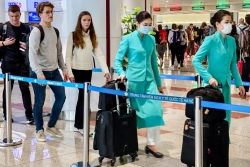
| Nikkei: EU is keen for Vietnam to restart flights as EVFTA takes effect Japanese news publication Nikkei Asian Review released an article detailing the EU’s desire for Vietnam to resume international flights once the European Union - Vietnam ... |

























